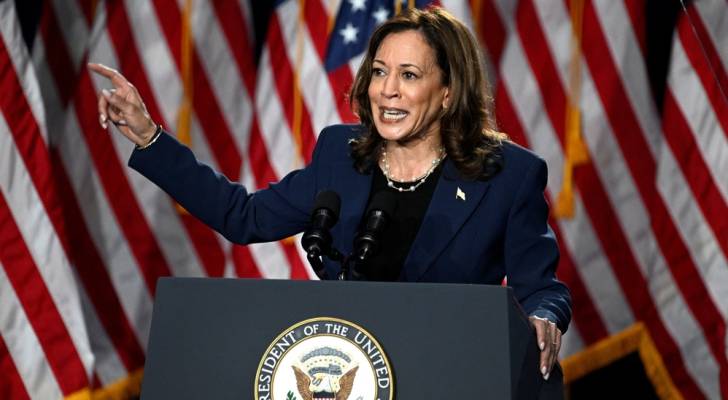Vice President and Democratic presidential candidate Kamala Harris has expressed her support for the Biden administration’s proposed tax increases.
A particularly contentious proposal aims to implement a 25% minimum tax on total income, including unrealized capital gains, for individuals with wealth exceeding $100 million.
Don’t miss out:
- Commercial real estate has outperformed the stock market for 25 years, but traditionally, only the super-rich could invest. Discover how ordinary investors can now become landlords for major retailers like Walmart, Whole Foods, and Kroger.
- Car insurance premiums in the United States are skyrocketing, with no relief in sight. However, spending just 5 minutes could lower your payments to as little as $29/month.
- These five strategic financial moves can elevate your position on America’s net worth ladder in 2024. Each step can be completed within minutes. Here’s how.
Jason Katz, managing director and senior portfolio manager at UBS, is a vocal critic of the proposed measure targeting the wealthiest Americans. In an interview with Fox Business, Katz vehemently opposed the proposal, labeling it “an unmitigated disaster.”
Capital gains refer to the increase in value of an asset over time. When an asset is sold and this increase is converted into cash, it results in realized capital gains, which are generally subject to taxation. Conversely, unrealized gains are the increases in value that have not yet been realized through a sale and are not currently taxable.
While Vice President Harris has largely endorsed President Biden’s tax policy proposals, she has indicated a preference for a smaller increase in the capital gains tax rate for the wealthy compared to Biden’s plan. This suggests that she might also diverge from his approach in other aspects, potentially opting not to tax unrealized capital gains.
‘Accounting nightmare’
Katz raised concerns about the practical challenges of implementing a tax on unrealized capital gains, emphasizing its complexity in execution and calculation.
To illustrate his point, he presented a hypothetical scenario: “Consider an ultra-high-net-worth individual who purchases $100 million worth of Amazon stock, which then appreciates to $150 million. If a 23% tax is applied to the $50 million gain in the first year, what happens if the stock value drops back to $100 million in the second year? Will the government rebate the tax from the previous year?”
This question highlights the difficulties of taxing assets in a highly volatile market where values can fluctuate dramatically. In the stock market, substantial gains in one year, often referred to as “paper gains,” can disappear the next. The concept of being taxed on gains that have not been realized in cash is particularly troubling, especially when those gains are no longer present.
Katz foresaw several negative outcomes for the proposal, stating, “It would be an accounting nightmare, and it would also drain money from the capital markets.”
Additionally, Katz criticized the tax’s extension to other asset classes, such as real estate, where investors also see unrealized gains. He questioned the policy’s practicality, asking, “Are real estate owners expected to liquidate their properties to pay these taxes? It makes no sense whatsoever.”
Who Should Be Concerned?
In the “Reasons for Change” section of the Treasury Department’s explanation of the revenue proposal, it is noted, “Preferential treatment for unrealized gains disproportionately benefits high-wealth taxpayers and provides many high-wealth taxpayers with a lower effective tax rate than many low- and middle-income taxpayers.”
This raises an important question: Will the proposed tax impact the average American?
The proposal explicitly targets “taxpayers with wealth (defined as assets minus liabilities) exceeding $100 million.”
This category encompasses only a minuscule portion of the population. A 2023 report by Henley & Partners indicates that around 10,660 Americans possess wealth of $100 million or more, representing roughly 0.003% of the U.S. populace.
Consequently, this tax would not directly impact the overwhelming majority of Americans. Nonetheless, given the significant capital held by those subject to the tax, there could be indirect repercussions on the markets.
However, Katz remains skeptical about the ultimate impact of the tax, recalling a conversation with publishing magnate Steve Forbes. “While they claim this will only apply to those with a net worth exceeding $100 million, as I discussed with Steve Forbes, it often begins there but eventually permeates other areas of the tax system,” Katz explained.
